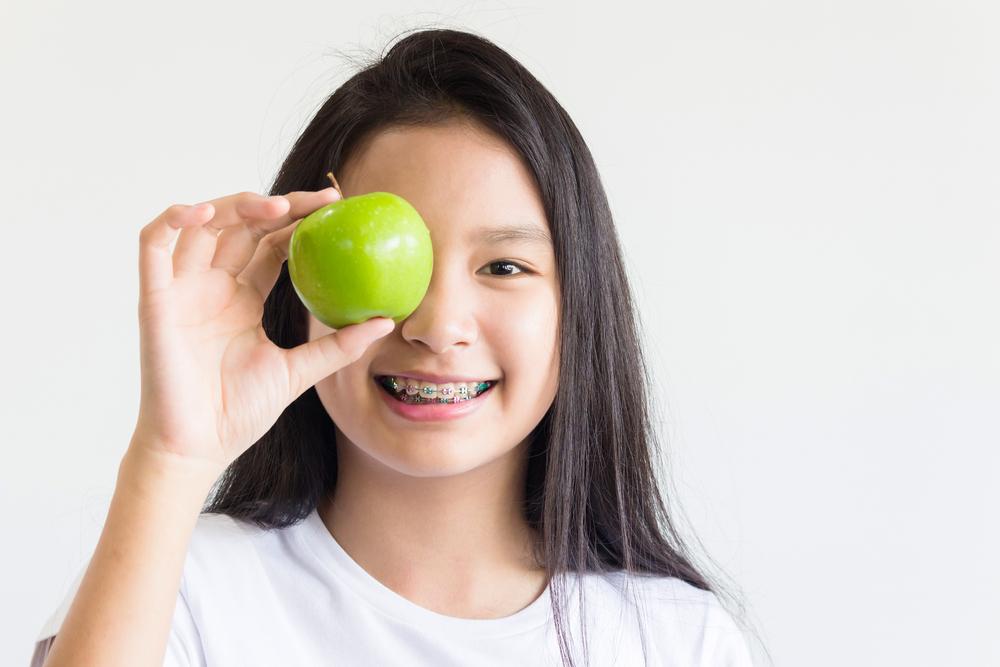
Eating with Braces: Foods to Avoid and Why
Maintaining a healthy diet is important for everyone, but it is especially crucial for those who are undergoing orthodontic treatment with braces.
When you have braces, there are certain foods that you should avoid in order to prevent damage to your braces and ensure that your treatment stays on track.
In this article, we will go over the foods that you should avoid with braces and why, as well as provide you with some alternatives and tips for eating with braces. By following these guidelines, you can make sure that you are eating a healthy, braces-friendly diet while also maintaining the integrity of your braces and keeping your treatment on track.
So, let’s dive in and learn more about the foods to avoid with braces.
Foods to Avoid with Braces
When you have braces, there are certain foods that can be problematic and should be avoided. These include sticky and chewy foods, hard and crunchy foods, as well as sugary and acidic foods. Let’s take a closer look at each of these categories.
Sticky and Chewy Foods
Sticky and chewy foods can be a problem for people with braces because they can get stuck in the brackets and wires, making it difficult to clean your teeth properly.
Here are some examples of sticky and chewy foods to avoid:
- Gum: Chewing gum can easily get stuck in your braces, and the sugar in gum can cause cavities.
- Caramel: Caramel is another sticky food that can get stuck in your braces and is high in sugar.
- Gummies: Gummies are another food that can easily get stuck in your braces and are often high in sugar.
Hard and Crunchy Foods
Hard and crunchy foods can be problematic because they can damage the brackets and wires of your braces. Here are some examples of hard and crunchy foods to avoid:
- Nuts: Nuts can easily damage your braces, and small pieces of nuts can get lodged between your teeth and braces.
- Popcorn: Popcorn can get stuck in your braces, and unpopped kernels can also damage your braces.
- Hard Candies: Hard candies can damage your braces and are often high in sugar, which can lead to cavities.
Sugary and Acidic Foods
Sugary and acidic foods can be problematic because they can lead to cavities and damage the enamel of your teeth. Here are some examples of sugary and acidic foods to avoid:
- Soda: Soda is high in sugar and acid, which can lead to cavities and enamel erosion.
- Fruit Juice: Fruit juice is often high in sugar and acid, which can also lead to cavities and enamel erosion.
- Sports Drinks: Sports drinks are often high in sugar and acid, which can lead to cavities and enamel erosion.
Now that you know the foods to avoid with braces, let’s take a closer look at why you should avoid them.
Why These Foods Should be Avoided
Risk of Damaging Braces
The first reason to avoid certain foods when you have braces is to prevent damage to your braces. Sticky and chewy foods can get stuck in your braces and pull on the brackets and wires, potentially causing them to break or become dislodged.
Hard and crunchy foods can also damage the brackets and wires of your braces, potentially causing them to break or become dislodged.
Additionally, biting down on hard or crunchy foods can cause the brackets and wires to press into your gums and cheeks, causing discomfort or even injury.
Risk of Developing Cavities
The second reason to avoid certain foods when you have braces is to prevent the development of cavities. Sugary and acidic foods can cause cavities by weakening the enamel of your teeth and providing a food source for harmful bacteria.
When you have braces, it can be more difficult to clean your teeth properly, which means that any food particles that get stuck in your braces or between your teeth can lead to cavities.
Risk of Prolonged Treatment Time
The third reason to avoid certain foods when you have braces is to prevent prolonged treatment time. When you damage your braces or develop cavities, it can set your treatment back and prolong the time that you need to wear your braces.
This means that you will need to wear your braces for a longer period of time than originally anticipated, which can be frustrating and inconvenient.
Now that you know why these foods should be avoided, let’s take a closer look at some alternatives to the foods to avoid.
Alternatives to the Foods to Avoid
Just because there are certain foods that you should avoid with braces doesn’t mean that you can’t enjoy a healthy, delicious diet.
Here are some alternatives to the foods to avoid that are soft, easy to chew, and braces-friendly.
Soft and Easy-to-Chew Foods
Soft and easy-to-chew foods are a great option when you have braces because they are less likely to get stuck in your braces or damage them.
Here are some examples of soft and easy-to-chew foods:
- Cooked Vegetables: Cooked vegetables are soft and easy to chew and are a great source of vitamins and nutrients.
- Soft Fruits: Soft fruits like bananas, grapes, and melons are easy-to-chew and are a great source of vitamins and fibre.
- Soft Bread: Soft bread like white bread, pita bread, and tortillas are easy to chew and are a great source of carbohydrates.
Nutritious and Braces-Friendly Snacks
Nutritious and braces-friendly snacks are a great way to satisfy your hunger and get the nutrients that you need without damaging your braces.
Here are some examples of nutritious and braces-friendly snacks:
- Cheese: Cheese is a great source of calcium and protein and is soft and easy to chew.
- Yogurt: Yogurt is a great source of calcium and protein and is easy to chew.
- Hummus and Crackers: Hummus and crackers are a great source of protein, carbohydrates and are easy to chew.
Drinks that are Safe for Braces
Drinks that are safe for braces are important because they can help keep your teeth clean and healthy while also keeping your braces in good condition.
Here are some examples of drinks that are safe for braces:
- Water: Water is the best drink for your teeth and is important for keeping your mouth hydrated.
- Milk: Milk is a great source of calcium and is important for keeping your teeth and bones strong.
- Sugar-Free Sports Drinks: Sugar-free sports drinks are a great way to stay hydrated and replenish your electrolytes without damaging your teeth or braces.
Now that you know some alternatives to the foods to avoid, let’s take a look at some tips for eating with braces.
Tips for Eating with Braces
Eating with braces can take some getting used to, but with these tips, you can make sure that you are eating a healthy, braces-friendly diet while also maintaining the integrity of your braces.
Cut Food into Small Pieces
When you have braces, it can be difficult to bite into certain foods. To make things easier, cut your food into small pieces that are easy to chew.
Chew with Back Teeth
When you are eating with braces, it’s important to avoid biting down on hard or crunchy foods with your front teeth. Instead, use your back teeth to chew your food.
Rinse Mouth after Eating
After you eat, rinse your mouth with water to help remove any food particles that may be stuck in your braces or between your teeth.
Brush and Floss Regularly
Brushing and flossing regularly is important for everyone, but it’s especially important when you have braces. Make sure to brush your teeth twice a day and floss once a day to keep your teeth and braces clean and healthy.
Now that you know some tips for eating with braces, let’s wrap up this article with a conclusion.
If you liked this post, check out our last article on, “Why Your Child Should Brush Their Teeth Every Day.”
